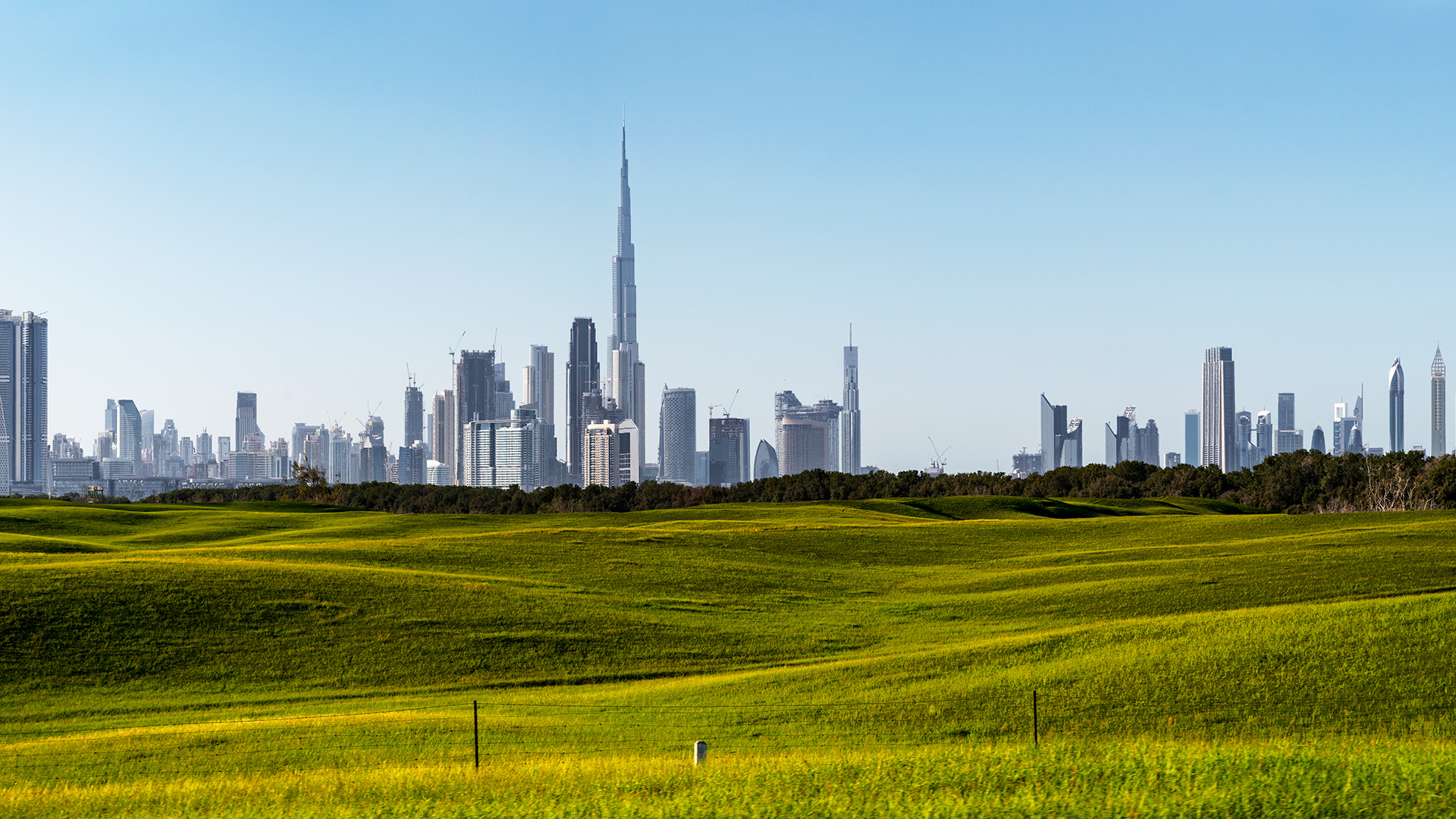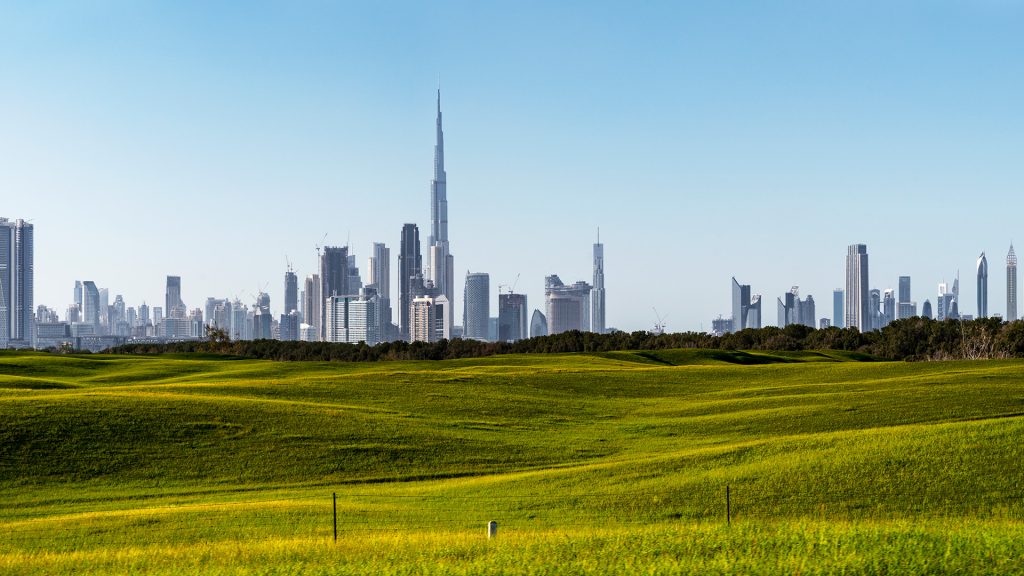
A COP28 Roadmap
Dubai’s clean energy projects are contributing to a greener future
As the world prepares its next round of defense against the changing climate, Dubai is helping to position the United Arab Emirates (UAE) as a leader on the path to a sustainable future.
A cornerstone of progress
The 28th edition of COP will take place in the UAE this coming November. As global participants meet in a bid to mobilize more ambitious climate action, it will be an opportunity for the hosting nation to showcase its leading efforts.
This was made clear at the World Government Summit 2023 by HE Saeed Mohammed Al Tayer, Managing Director and CEO of Dubai Electricity and Water Authority (DEWA), in his speech ‘What We Offer to COP28’. Among thousands of international government officials, thought leaders, and decision-makers, he defined the UAE as a “cornerstone” of all environmental progress.
The UAE was the first country in the Middle East and North Africa (MENA) to launch an initiative to achieve net-zero carbon emissions by 2050. And as explained by Al Tayer, it is a goal that the Emirate is already moving towards under the leadership of His Highness Sheikh Mohamed bin Zayed Al Nahyan, President of the UAE – who has declared 2023 as the ‘Year of Sustainability’ – and the vision and directive of His Highness Sheikh Mohammed bin Rashid Al Maktoum, Vice President and Prime Minister of the UAE and Ruler of Dubai.
The UAE is the cornerstone for all social, economic, and environmental development plans.
HE Saeed Mohammed Al Tayer, Managing Director and CEO of DEWA

The power of solar
In line with the UAE’s net-zero strategy and wider Sustainable Development Goals (SDGs), DEWA is continuing to support the city’s mission of reaching 100% power capacity from clean energy sources by 2050. The utility company has launched several sustainability projects, including Research, Development, and Innovation Centers and the Mohammed bin Rashid Al Maktoum Solar Park – the largest single-site solar park in the world.
Despite being climate-dependent, DEWA raised the efficiency of solar energy from 11% to 27% and, in turn, increased the production capacity of clean energy in Dubai to around 14.6% of the total capacity. Much of this has to do with DEWA’s adoption of next-generation technologies, but it has plans to make solar energy even more reliable.
The fourth phase of the solar park will combine Concentrated Solar Power (CSP) and photovoltaic technology to add 950MW to the overall production capacity. It will also include the world’s largest thermal storage capacity of 15 hours, allowing for a consistent and uninterrupted power supply. Paired with ambitions to generate electrical energy from solar-powered hydrogen, there is no denying DEWA’s proficiency in green innovations.
Smart energy, smart city
Away from the solar park, DEWA has implemented smart energy solutions across Dubai’s city infrastructure. During the World Government Summit, Al Tayer announced the total installed capacity of DEWA’s Shams Dubai initiative, which works “to install photovoltaic solar panels on the roofs of buildings and facilities to meet part of their [customers’] energy needs”, reached 500MW by the end of 2022. Furthermore, contributing to its portfolio of 8,000 already retrofitted buildings.
“DEWA has also participated in establishing the largest district cooling company in the world,” he continued – a system that can result in more than 40% of energy efficiency improvements and 20% lifecycle cost savings compared to conventional air conditioning systems. Better yet, it has become the first global utility to use nanosatellites to enhance operations, like district cooling, and its wider electricity and water network.
By taking this forward-thinking approach to sustainability, DEWA has helped to prevent over 14 million tons of CO2emissions between 2011 and 2021. And it is an ideology that will allow it to make further developments in the future fight against climate change.

Digital age of utilities
As the world embraces the Fourth Industrial Revolution, technology is becoming an essential component in the make-up of a planet-positive society – a shift that hasn’t gone unnoticed by DEWA as Al Tayer revealed in his summit speech.
“As part of Digital DEWA, we are disrupting the entire business of public utilities and contributing to building a new digital future for Dubai. Digital DEWA is based on four pillars: launching advanced solar power technologies; deploying a renewable energy grid with innovative energy storage technologies; expanding integrated AI solutions; and providing digital services that serve smart, sustainable cities.”
So far, DEWA has opened the largest carbon-neutral data center, launched the ‘Rammas’ AI-powered assistant for customer queries, and implemented a 7-billion (AED) Smart Grid Strategy to advance its utility operations. And it is now working to enrich its services even further with the language optimization tool, ChatGPT. This will make DEWA the first utility company and UAE government entity in the world to use this new technology.
“With the increasing challenges associated with climate change, there is a need for serious global cooperation to protect the environment and natural resources,” concluded Al Tayer. As DEWA strengthens its commitment to clean energy and sustainable solutions, “we promise to do our best to make COP28 a key milestone in the journey [towards] a brighter future.”


